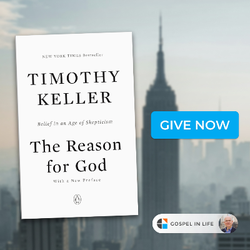
The Search for Identity

When it comes to building up identity and self-esteem, I’m afraid Americans are very pragmatic—and our pragmatism gets to us. Our books and articles say if you want self-esteem, you should lose weight, change your friends, switch your career, and so on. But nobody asks why. They don’t like to think about the underlying theory.
It’s important to understand that there are certain reigning theories of identity formation. Unless you recognize them and analyze them, you’ll just pick them up like a virus.
Let’s divide our inquiry into two parts: 1) what the world says is the way to find out who you are and 2) what the Bible says is the way to find out who you are.
This sermon was preached by Dr. Timothy Keller at Redeemer Presbyterian Church on October 10, 1993. Series: Modern Problems; Ancient Solutions. Scripture: Psalm 8.
Today's podcast is brought to you by Gospel in Life, the site for all sermons, books, study guides and resources from Timothy Keller and Redeemer Presbyterian Church. If you've enjoyed listening to this podcast and would like to support the ongoing efforts of this ministry, you can do so by visiting https://gospelinlife.com/give and making a one-time or recurring donation.
Featured Offer

Archives

 Learn How
Learn How
Featured Offer



